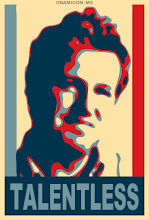Maxwell's Demon
Our coach was making heavy weather of crossing the Eaglesham moors from the borders of Ayrshire to Eaglesham village itself. Donald Findlay had picked me up in his favourite mode of transport: a hansom cab and so we had trundled through woods along ancient paths until the trees and all signs of life had disappeared and we were on the moors just in time for the fog to come rolling over us. The cab’s lanterns shone brightly in front of us and we could see the fog coming at us in waves; here along the ground and there at head height, like nimbus drawn towards the ground for respite from being tossed around in the wind. Either side of us the grass stretched for only a few dozen yards until it disappeared in the white haze and clumps of grass shone in the lamp light looking for the world like so many dead sheep – you’d almost think James Delahunt had been here.
At last we descended from the heights and stopped at a local tavern, the Swan where we took a table by the fire and Findlay ordered up some bread and cheese with a couple of ales and we both sat in silence, letting the cold leave our bones. Presently there appeared a tall man in a stove pipe hat and black cloak, he sported a set of grey whiskers that had Findlay bristling with envy and then to our surprise, he pulled up a seat beside us.
‘Have you ever heard the story of Maxwell’s Demon?’ he asked, his head bowed so that the brim of his topper cast his eyes into shadow and all we could make of his face was a long nose which poked out between the hat and the whiskers.
‘Let me put it this way, if your Government was plotting the destruction of a great sporting institution for political gain, would you really want to know?’
Later, as we left, puzzled by the tale we’d just heard from a complete stranger, I asked Findlay about it as he grunted and heaved himself into the hansom. ‘All I know, he puffed. ‘Is that he never stood his round’ and no more was said of it until we’d left the village and were once again trundling through countryside, enveloped in fog. After a while, Findlay leaned in towards me and in almost a whisper, started speaking.
‘Not so long ago, society here was reaching an equilibrium where sectarianism and tribal violence were on the decrease and then Lawwell came along. Oh he wasn’t alone; he had others in similar and even greater positions of power than his own, all willing to stir up the country and happily watch the old hatreds and resentments come bubbling once again to the surface but Lawwell, although a mere CEO of a football club, had a reach greater than any Members of Parliament, be it Westminster or the Bubbly Jocks one at the bottom of the High Street. You see, Lawwell had tens of thousands of psychotic, paranoid and aye, bigoted followers all willing and ready to do anything to further the causes of their club and by extension, their religion, their tribe. While rational people got on with their lives, other less rational people were plotting together to destroy the Rangers Football Club; some to rid the country of the last bastion of immediately recognisable Unionism and others to destroy a club that represented certain aspects of Scottish society anathema to them. Am I making myself clear, Spiers?’
‘As clear as that other fellow from the pub,’ I ventured and Findlay sighed and sat back in the darkness of the cab, briefly illuminated by a match as he lit his pipe and sat in a fug of smoke for a while. He emerged again and slapped my knee with his glove.
‘I want to show you something, youngster. I think you’ll appreciate it’ and he tapped the roof with his cane and the driver pulled the horses into the side of the road and we got out.
Findlay led me though a gate and into a field where we walked through the fog until suddenly it parted to reveal a huge tower. I’d never noticed this before and said so.
‘It’s not immediately seen from the road, boy’ muttered Findlay. ‘But it’s up there you need to go to find your answer.’
‘Answer to what?’
‘To just how low the Scottish Establishment would plunge to support certain agendas. Go on, climb the stairs and count ‘em. Count ‘em all then count ‘em again on the way back down. That’s how low they’ll go.’
He was talking in riddles now but he promised to wait for me so I creaked open the door and climbed the steps of the tower; I counted 380 by the time I got to the top and pretty heavy going it was too. I was just catching my breath on the belfry when I noticed the fog had gone and I could see Findlay getting into the cab and the driver whipping up the horses and off they went, rattling down the road, leaving me behind. I ran for the stairs and carefully but quickly, descended, taking care to count the stairs on the way down. I descended and counted and after an hour I stopped and wondered what the hell had Findlay done to me, I was still nowhere near the bottom; so I took off again, step after step, counting, ‘1211, 1212, 1213…’



0 Comments:
Post a Comment
Subscribe to Post Comments [Atom]
<< Home